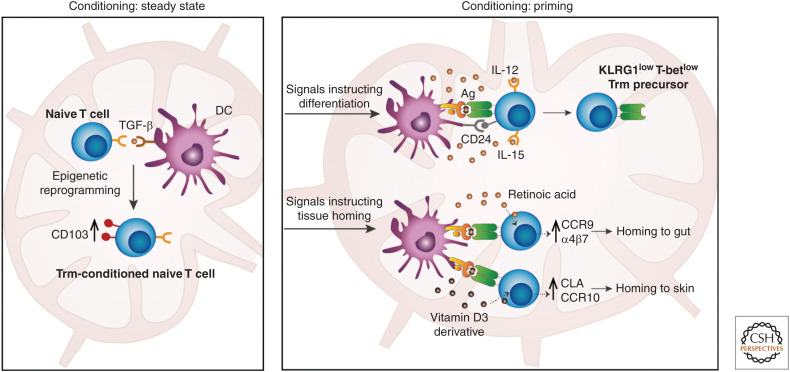Figure 1.
Trm cell conditioning in lymphoid tissues by dendritic cells (DCs). DCs are critical players in Trm cell fate conditioning of naive T cells. (Left panel) In the absence of infection, αV+ migratory DCs present active transforming growth factor β (TGF-β) that promotes epigenetic modifications in naive T cells and poises them for epithelial (i.e., CD103+) Trm cell fate. (Right panel) In case of infection, certain signals that DCs provide to naive T cells during activation can increase their capacity to form Trm cells (i.e., yielding effector phase T cells with low expression of killer cell lectin-like receptor G1 [KLRG1] and transcription factor T-bet), such as antigen cross-presentation, costimulation via CD24, and cytokines such as IL-12 and IL-15. In addition, DCs may process and present metabolites to induce expression of lymphocyte homing molecules (e.g., CCR9 and α4β7) on activated T cells, thereby instructing them to migrate to specific tissue sites.

